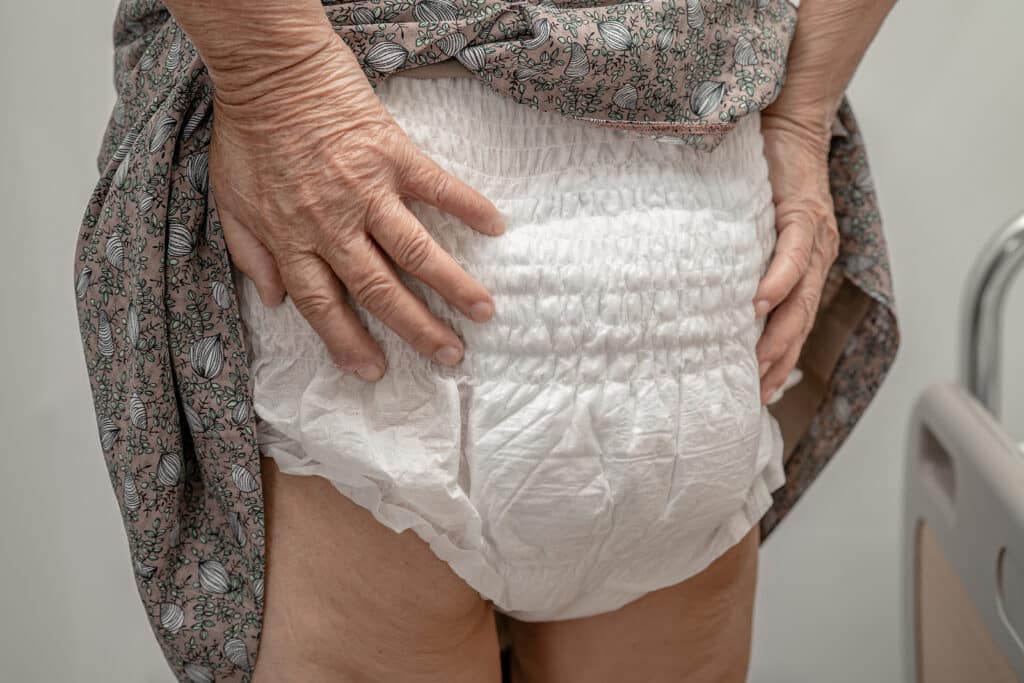Incontinence means someone can’t control their bowel and/or bladder. It can happen to any senior citizen, even those who are generally healthy. However, it is often a problem for those with dementia. As a family caregiver, it is important for you and your senior home care provider to learn about various signs of incontinence, causes of the condition, and other things related to the condition, too.
Table of Contents
ToggleSigns of Incontinence
If you or senior home care providers are taking care of your elderly loved one, you may notice they have signs of incontinence that include:
Soiled bed sheets
Soiled underwear
Issues emptying their bladder
Leaking urine
Bowel accidents
It is important for your elderly loved one to talk to their doctor if these things are happening, If needed, you can have a senior home care provider take them to this appointment.
Things That Commonly Cause Incontinence
There are many different things that can commonly cause incontinence. However, it is important to know that just because someone has these conditions, that doesn’t automatically mean they are going to experience incontinence. There are also different reasons why someone may have incontinence, too. With this being said, some of the most common causes of incontinence in the elderly include:
- Enlarged prostate gland
- UTI
- Dehydration
- Untreated diabetes
- Drinking a lot of caffeine
- Taking a lot of water pills
- Taking medications that make it tough to hold urine
Now that you know some of the common causes of incontinence and know to speak with your elderly loved one’s doctor about this issue, you should also learn how to help your elderly loved one with the condition.
Best Ways of Managing Incontinence
There are numerous ways that you can help your elderly loved one to manage incontinence. Some of the best tips for doing this include:
- Reminding them to use the bathroom every 2-3 hours
- Showing them or helping them to the bathroom
- Making sure they wear comfortable, loose clothing
- Limiting fluids in the evening and at night
- Giving them fresh fruits later in the evening if they are thirsty
- Helping them use the toilet if they have trouble getting around
You and senior home care providers can work together to manage your elderly loved one’s incontinence. Accidents may still happen and your elderly loved one may need help cleaning up after those accidents. If your elderly loved one does have this health condition, it may be a good idea to have incontinence supplies on hand.
Conclusion
Does your elderly loved one have incontinence? If so, what severity is their condition? How much care do they need to help them manage incontinence? Once you have answered these questions, you can set up a care plan for your elderly loved one. If needed, senior home care providers can go to your elderly loved one’s house and help them to prevent accidents or help to clean up after accidents, too. They can also take your elderly loved one to their incontinence management doctor’s appointments, too.
Incredicare is a Trusted Senior Home Care in Oakton, VA, serving Arlington, Alexandria, McLean, Reston, Burke, Ashburn, Centreville, Springfield, Oakton, and Woodbridge Virginia. And the surrounding areas. Call today to speak with our caring staff: (703) 272-8838
Sources
https://www.nia.nih.gov/health/alzheimers-disease-common-medical-problems
- How 24-Hour Home Care Helps Enhance the Health and Well-Being of Seniors With Chronic Conditions - June 6, 2025
- What Are Some Surprising Early Signs of Dementia? - May 22, 2025
- Training of the Month: Lymphedema - May 15, 2025




